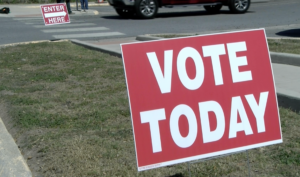BROWNSVILLE – The Southern Association of Colleges and Schools Commission on Colleges’ principles and Senate Bill 37 contradict on who has control over university curriculum; the association now responds to this contradiction.
The President of The Southern Association of Colleges and Schools Commission on Colleges, also known as SACSOC, Stephen Pruitt gave KVAQ-TV the following statement: “SACSCOC is aware of the provisions set forth in SB 37 state legislatures are mandated to set policy for their respective state and institutions are bound to implement that policy. Therefore, SACSCOC does not hold institutions accountable when our standards are, or are perceived to be, in conflict with state law.”
According to SACSCOC’s Principles of Accreditation, section 10.4 states universities must give faculty the primary role in choosing courses for a student’s degree plan.
Senate Bill 37 on the contrast has shifted the authority to university boards for final decisions on what classes students need to take to graduate. This means faculty will no longer have final say on which classes or material can be taught at universities.
Prior to the statement from SACSCOC’s president, UTRGV’s Vice President for University Marketing and Communications Patrick Gonzales gave the following statement to KVAQ-TV: “UTRGV is awaiting implementation guidance from the UT System Board of Regents regarding SB 37, so I’ll have to decline an interview at this time. However, we do not anticipate SB 37 having any impact on our accreditation with SACSCOC.”
KVAQ-TV interviewed Lizethe Villafranca and Martha Villanueva, two UTRGV students to voice their opinions on SB 37 and its effect on curriculum.
“Just because I do know that majority of the time, professors do recommend some classes and it’s just helpful for you to kind of know what to expect whenever you graduate,” Villafranca said. “Specifically, like what classes to take, when your advisors cannot give you enough information.”
“I guess it would [have an] affect because the professor’s kind of see whatever we need support with so, let’s say if somebody comes and just decides without knowing I guess the background of it, it might have some kind of effect,” Villanueva said. “So, I hope it’s for the best.”
As of now, we have no information on who will be a part of the university boards. As mentioned before, these university boards will decide what classes are offered and what is taught in those classes in public higher education institutions.
The University of Texas System is expected to meet on Nov. 19 and 20.
KVAQ-TV will keep you updated as we receive information.





